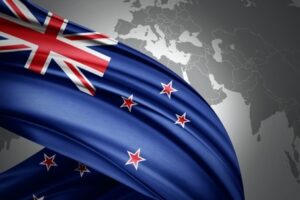 Legal Basis
Legal Basis
New Zealand is a signatory to the World Intellectual Property’s Trade-Related Aspects of Intellectual Property (TRIPS) Agreement. The legal basis for compulsory licenses under New Zealand Patent Law is the New Zealand Patents Act. The provisions for compulsory licenses are found in Sections 169 through 175.
The grounds for obtaining a compulsory license under Patents Act, Section 170 are that the market:
- For the product is not being supplied; or
- Is not supplied on reasonable terms.
Regarding the second factor, the “reasonableness” of supply is determined by the court on a case by case basis. The New Zealand High Court makes a decision by considering the following factors:
- Whether there is a demand for the patented invention;
- If so, what that demand might reasonably be expected to be; and
- The quantum of shortfall in the supply of that expected demand.
These factors were laid out in Kamborian’s Patent case [1961] RPC 403. If these factors are met satisfactorily, the High Court may grant a compulsory license to the applicant.
Requirements for obtaining a Compulsory License
For a compulsory license to be granted, the person applying for the license must have made efforts to obtain the license from the patentee on reasonable commercial terms and must have been unable to obtain same, or unable to obtain the license on reasonable commercial terms, within a reasonable period of time
A prospective licensee may apply to the court for the compulsory license of a patent. The said patent must have been granted for no less than four years after date of the patent, or three years after sealing, whichever is later.
Under Section 171, the court has to be satisfied that the patented invention is directed to:
- A pharmaceutical product; or
- The process for making a pharmaceutical product.
- A pharmaceutical product needed to address a serious public health concern affecting and the pharmaceutical product is needed to address a serious public health problem like an epidemic, HIV/AIDS, tuberculosis, malaria or other disease and all the produced pharmaceutical product will be exported to the affected countries (TRIPS signatory countries).
The Court has to be certain that the grant of the compulsory license is not to the economic detriment of the patent holder and makes provision for remuneration to be paid to the patentee upon grant of the compulsory license.
Compulsory licenses in New Zealand are unassignable, except with a total assignment of the goodwill of the business. The license can be terminated by the High Court, if the circumstances under which it was granted ceases to exist.
Appeal/Review
Compulsory license cases are decided before the New Zealand High Court. The Court of Appeal and ultimately, the Supreme Court, also decide compulsory patent cases on appeal.
COVID-19 Regulations and Proposals
At this time, New Zealand has not passed any legislation or regulations relating to the COVID-19 pandemic.
In cooperation with:Adam Denley, PhD (FPA Patent Attorneys)
Image Source: Shutterstock ID:1395539726
________________________
To make sure you do not miss out on regular updates from the Kluwer Patent Blog, please subscribe here.


